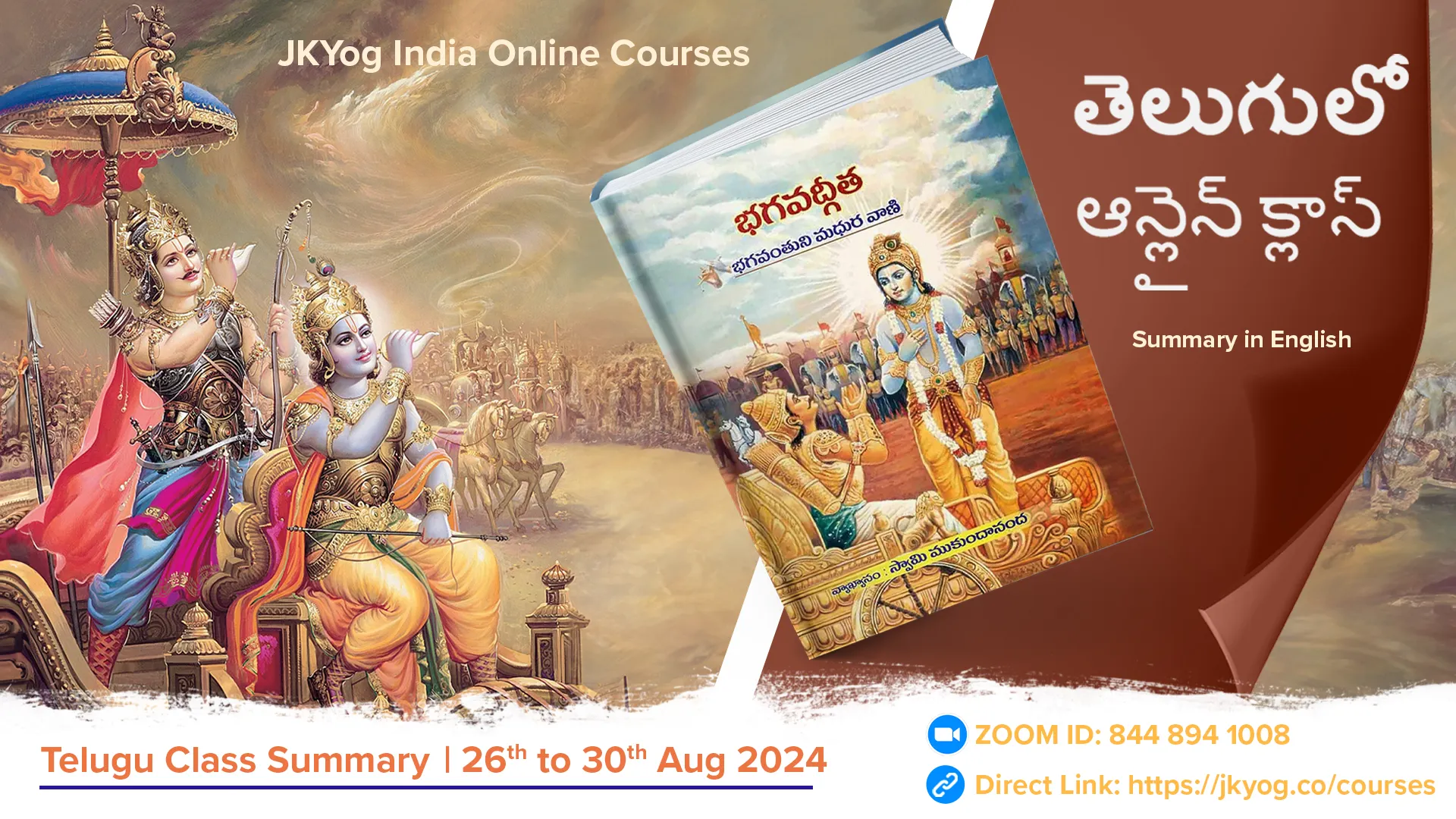The Bhagavad Gita Verse Summary 4.24-4.33
For those fully immersed in God-consciousness, every aspect of a sacrifice—the offering, the ladle, the act of offering, and the sacrificial fire—is viewed as an expression of Brahman. Such individuals, who see all things as manifestations of God, effortlessly attain Him.
Some yogis offer material sacrifices to celestial gods in hopes of rewards, while others, with deeper understanding, sacrifice their very selves to the Supreme Truth, seeing this as the highest form of devotion to God.
Some focus on controlling their senses through self-discipline, while others use their senses to worship God. Shree Krishna compares these approaches, explaining that haṭha yog involves strict control of the senses. At the same time, bhakti yog engages the senses in devotion, offering a more joyful and balanced path to spiritual growth.
Some, guided by wisdom, direct their senses and energy into the discipline of the mind. These yogis follow the path of jñāna yog, using knowledge to withdraw from the world and focus on self-realisation. This challenging practice requires deep thought and strong intellect, suitable for those who have renounced worldly attachments.
People have different natures and motivations, so their sacrifices take various forms. Some give their wealth, and others commit to strict austerities, practice the eightfold path of yoga, or study scriptures and gain knowledge. Shree Krishna explains that when these efforts are dedicated to God, they purify the mind and uplift the soul, turning into genuine paths for spiritual growth.
Some individuals engage in prāṇāyām, controlling their breath through various techniques to focus the mind and tame the senses, offering this disciplined mind to the Supreme Lord. Others turn to fasting and dietary control, using these practices to purify themselves by weakening the senses and regulating digestion, ultimately achieving spiritual purification and alignment with divine intentions.
Those who grasp the essence of sacrifice—offering everything to God and enjoying the remnants of His grace—experience spiritual illumination and advancement, moving closer to the Absolute Truth. In contrast, those who ignore this practice find no true happiness in this life or the next, remaining entangled in worldly suffering.
The Vedas outline different types of sacrifices suited to various human natures and actions. Understanding and performing these sacrifices with devotion to God helps untangle material attachments and achieve liberation.
Shree Krishna tells Arjun that sacrifices done with understanding are much better than just following rituals. He explains that while rituals and pilgrimages are helpful, they’re not enough on their own; true sacrifice also requires gaining knowledge and devotion to purify the mind and achieve spiritual liberation.
In the next class, we will explore how the guru imparts knowledge to us.
Summary: JKYog India Online Class- Bhagavad Gita [Telugu]- 26th to 30th August 2024.








